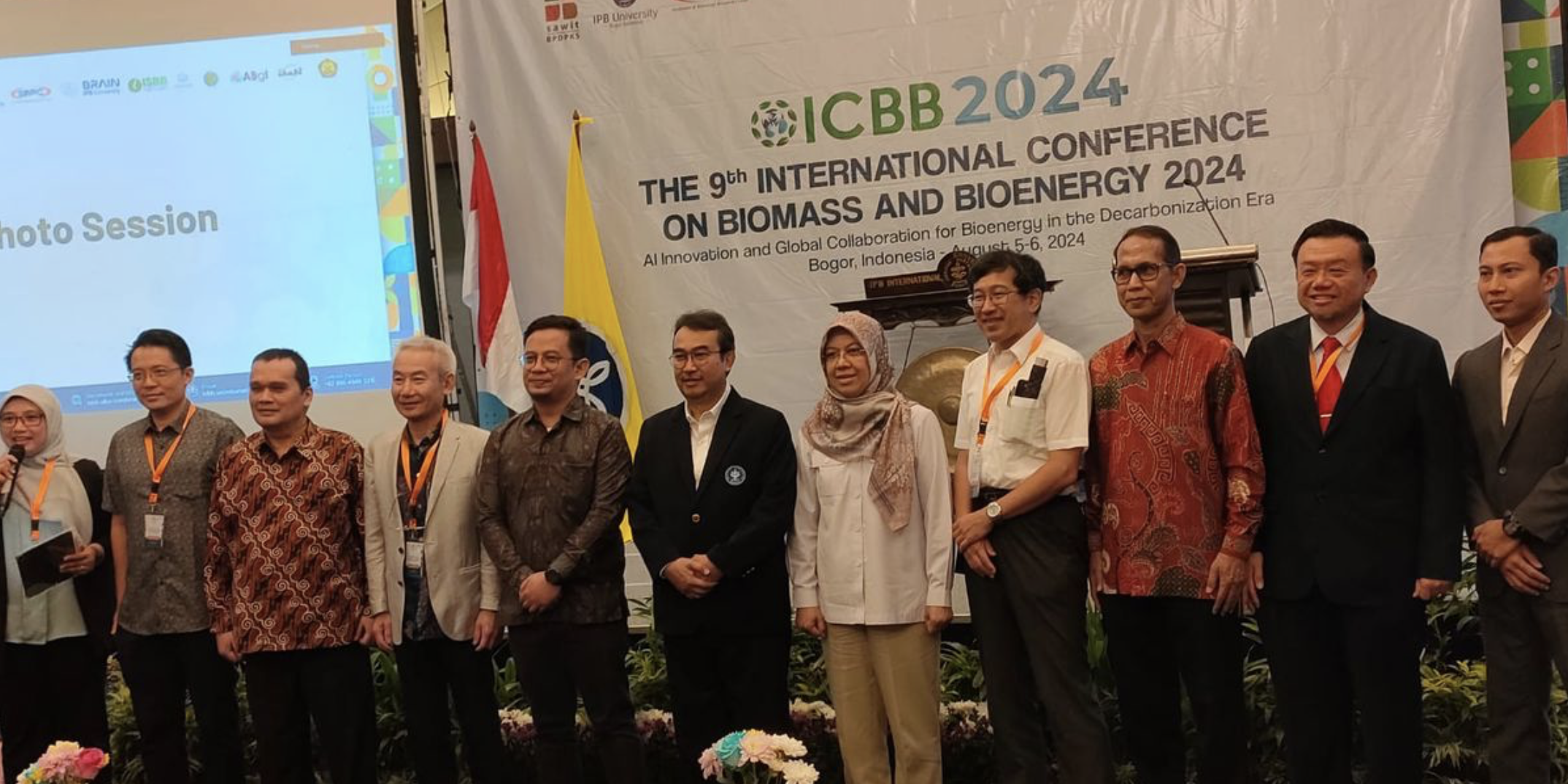A total of eight countries participated in the international biomass and bioenergy (ICBB) 2024 conference to discuss new ideas in developing products from renewable energy, downstream haci in Indonesia, such as palm oil products, which have abundant basic ingredients. This conference is in order to promote “Good SEWIT” to the international community.
The conference was held by the Surfactant and Bioenergy Research Center, the Bogor Agricultural Institute in collaboration with the International Society of Biomass and Bioenergy (ISBB) with the support of the Palm Oil Plantation Fund Management Agency (BPDPKS).
Head of the Research Center for surfactants and Bioenergries (SBRC) IPB Dr. Meika Syahbana Rusli explained, the conference that carries the theme AI Innovation and Global Collaboration for Bioenergy in the Decarbonization Era became a positive activity in the context of disseminating the development of science and technology in the field of biomass and bioenergy to support decarbonization.
“Then there will also be a discussion event, exchanging ideas from various stakeholders as conveyed by Mrs. Feby (representation of the Palm Oil Plantation Fund Management Agency (BPDPKS), there is hope that new ideas can arise from this conference,” said Meika, Monday 5 August.
According to him, this conference can share research progress of Indonesian researchers and friendly countries, especially each researcher has progress in his research, exchange knowledge to be published internationally and can encourage government policies in terms of biomass and bioenergy.
Meika explained that 100 participants were directly present. Then there are about 100 more people who attended online. Meanwhile, there were seven speakers representing seven countries, namely Japan, Malaysia, Australia, America, Turkey, Nigeria, the Philippines.
Of the hundreds of conference participants, 81 research papers from six countries have been registered, but only 80 have been approved to be presented.
Meika also explained that for universities this conference is very useful for the development of science, while from the government side, it has resulted in policy push.
“Regarding the successful example of B35, biodiesel is in the series of previous conferences discussed. Research on biodiesel itself, how to do field trials, so some of the policies that have been executed by the current government, are actually one of the sources of information base is this conference.”
“So indeed, the results of the research hasion determination, then the concepts, ideas that we can merge through this conference can be a policy recommendation for the government later,” he explained.
Deputy Chancellor for Research, Innovation and Agro-martim Development, Prof. Ernan Rustiadi, expressed his appreciation for the progress in terms of policies from the Ministry of Energy and Mineral Resources to support the results of domestic research.
“Yes, Alhamdulillah, since ESDM is now there, since it has been the Directorate General of New Renewable Energy and so on, now there has been a lot of progress from the policy side. If we are in higher education, of course we will develop innovations, technology, research. One of them, Mr. Meika’s center is SBRC, which produces the most new and renewable energy research, biomaterials,” said Ernan.
Ernan said that now it is arguably the largest monocultural agricultural system in Indonesia with more than 16 million hectares. But unfortunately, Indonesia is still focused on using its oil. In the field, for example after rejuvenation, palm oil stems were only cut into pieces and donated to the field and so on.
“Not to mention the bulk and so on, but now we have BPDPKS that funds research. In IPB, the use of palm oil products varies. Some are already in the form of fabrics, yes, there are helmets and so on. So, there are a lot of research related to the use of palm oil products, thank God,” he said.
Source: VOI News
Disclaimer
This article may contain copyrighted material, the use of which may not have been pre-authorized by the copyright owner. This material is made available for the purpose of giving information and knowledge. The material contained on the Astra Agro website distributed without profit. If you are interested in using copyrighted material from this material for any reason that goes beyond ‘fair use’, you must first obtain permission from the original source










